In today's fast-paced world, mental health is becoming an increasingly vital topic of discussion. Communicating the need for a referral can often feel daunting, but it's a crucial step toward providing support for someone in need. This letter template aims to simplify the process, ensuring your message is both compassionate and effective. So, let's dive into how to craft the perfect letter to facilitate a mental health referral and help make a difference in someone's life.

Patient Information
In a mental health referral communication, key details about the patient are crucial for ensuring appropriate care. The patient's full name, date of birth (DOB), and contact information provide a clear identification. Details regarding the patient's mental health history, including any diagnoses such as Major Depressive Disorder or Generalized Anxiety Disorder, are vital for understanding their treatment needs. Current medications, dosages, and any known allergies should be included to inform the receiving provider of potential interactions. The referral source, such as a primary care physician or a psychologist, must be identified along with their contact details for seamless communication. Previous treatment methods, therapeutic interventions, and any notable family history of mental health issues can offer additional context to the new provider, facilitating a comprehensive assessment. Lastly, relevant social factors, such as living situation and support systems, are essential in outlining the patient's overall well-being and environment.
Referral Reason
Mental health referrals often arise from various situations that require professional intervention. Common reasons for these referrals include persistent feelings of sadness or anxiety lasting longer than two weeks, suicidal thoughts or behaviors, or significant changes in mood and behavior. Patients may experience symptoms that interfere with daily functioning, such as difficulty concentrating, withdrawal from social interactions, or problems in the workplace. Conditions like depression, generalized anxiety disorder, or post-traumatic stress disorder often prompt referrals, particularly when individuals show signs of increased emotional distress. Furthermore, referrals are made for patients exhibiting risk factors, such as substance abuse or a family history of mental health disorders. Mental health professionals evaluate each case to provide tailored care that addresses the individual's specific needs in settings ranging from outpatient clinics to psychiatric hospitals.
Relevant Medical History
Relevant medical history plays a crucial role in mental health referrals, shaping the understanding of a patient's psychological well-being and informing treatment approaches. Conditions such as Major Depressive Disorder and Generalized Anxiety Disorder can be linked to extended stressors, like job loss or family conflict. Notable prior interventions, including Cognitive Behavioral Therapy and medication regimens with SSRIs (Selective Serotonin Reuptake Inhibitors), should be documented, highlighting their effectiveness or any adverse effects experienced by the patient, such as weight gain or increased anxiety levels. Furthermore, previous hospitalizations for psychiatric reasons, particularly within renowned facilities like the Mayo Clinic or Johns Hopkins, should be specified, as they provide critical insights into the severity of the patient's condition. Ultimately, thorough documentation of medical history enables healthcare professionals to create tailored care plans, enhancing treatment outcomes within various therapeutic settings.
Current Symptoms and Concerns
Patients may present various symptoms related to mental health disorders, such as anxiety (excessive worry impacting daily life), depression (persistent feelings of sadness), and mood swings (rapid changes in emotional state). Concerns may include difficulty concentrating (affecting work or school performance), changes in sleep patterns (insomnia or hypersomnia), and social withdrawal (reduced interaction with friends or family). Additionally, physical symptoms such as fatigue (chronic tiredness) or unexplained aches can manifest, further complicating the overall condition. Timely referral to a mental health professional, such as a psychologist or psychiatrist, is crucial for accurate diagnosis and effective treatment.
Contact Information for Follow-up
Mental health professionals require accurate and organized contact information for follow-up communication with patients, ensuring continuity of care. Primary details include the patient's full name, date of birth, and insurance provider (e.g., Blue Cross Blue Shield). Additional information includes the primary care physician's name and direct phone number for referrals, as well as the preferred contact method for follow-up (email, phone, or patient portal). If relevant, a list of scheduled appointments and their respective dates, along with any pertinent medical history, offers context. Emergency contact details and any ongoing medication lists provide critical insights into patient management and safety during treatment.

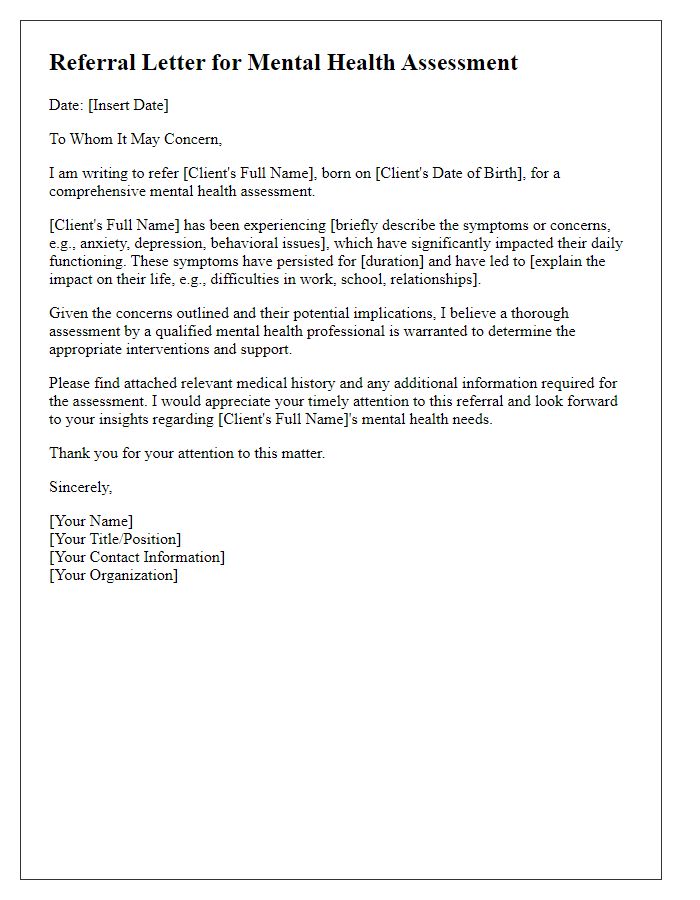
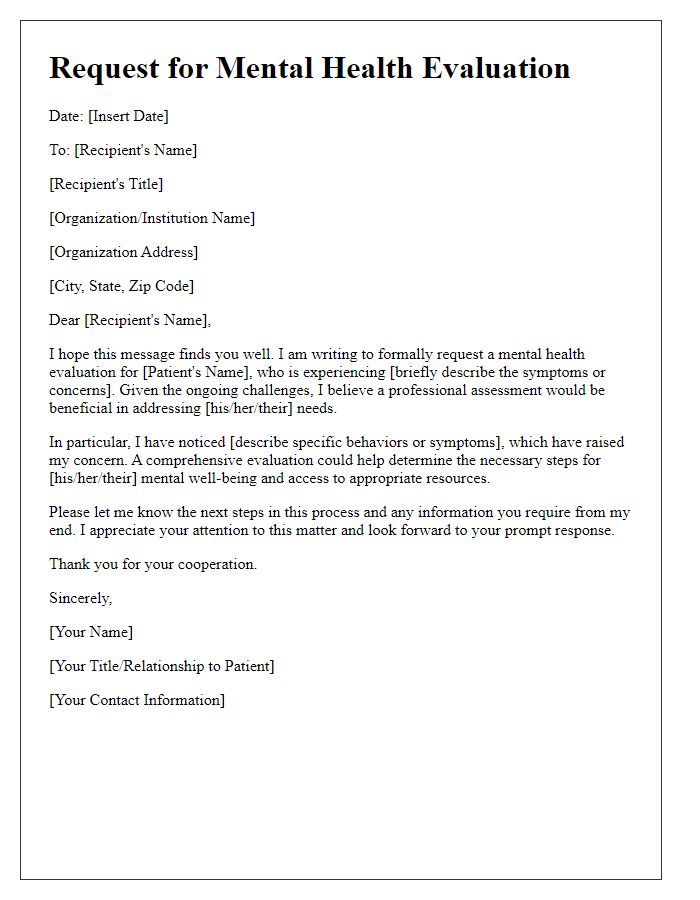
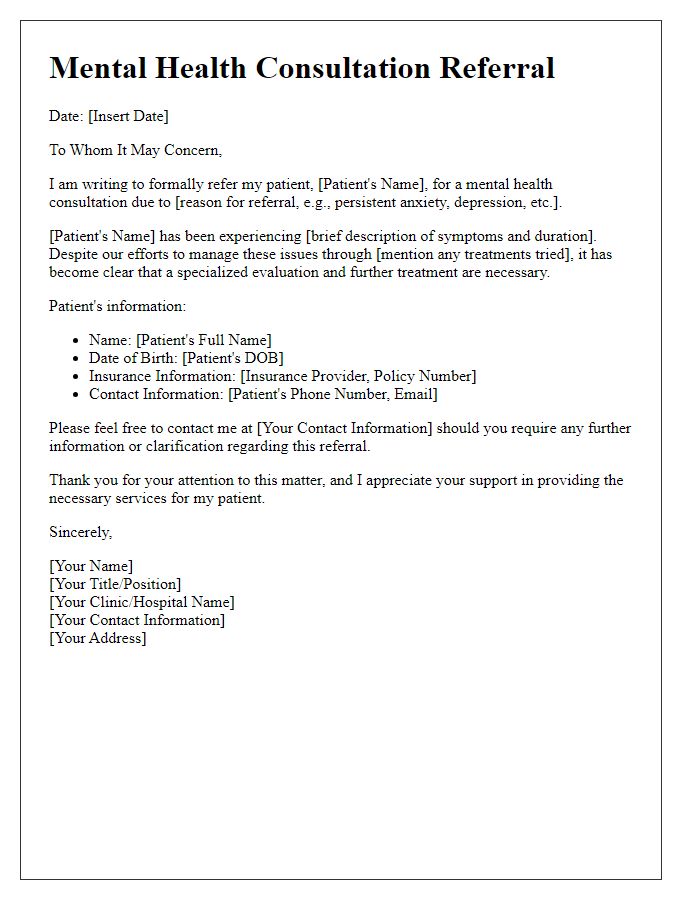
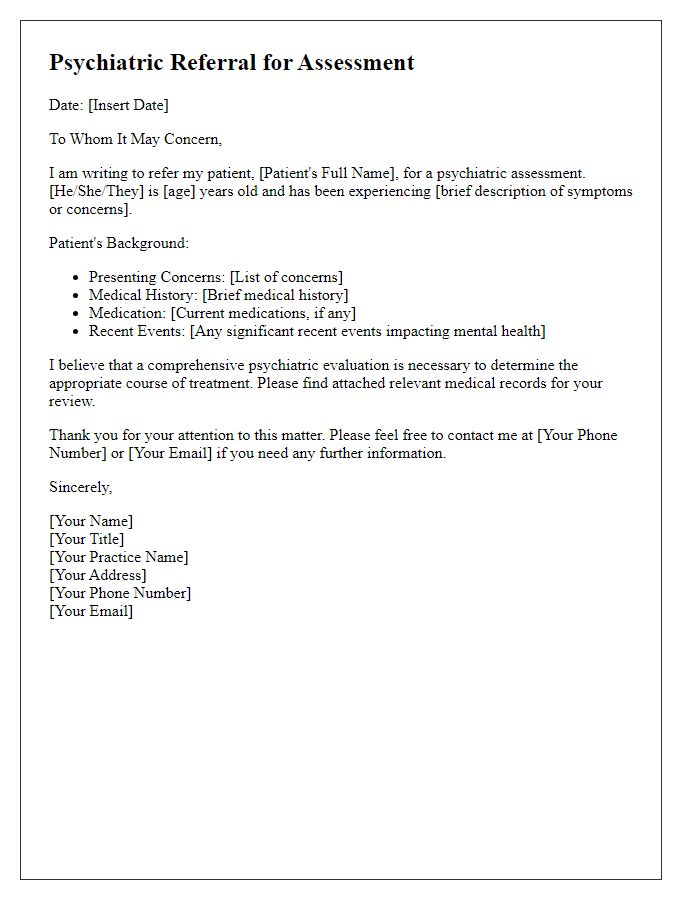
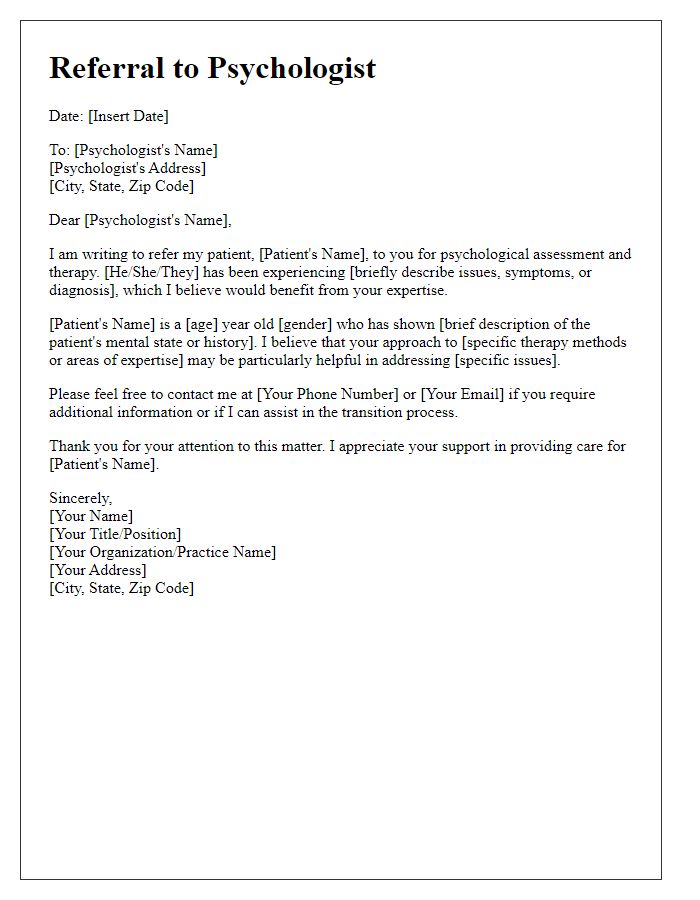
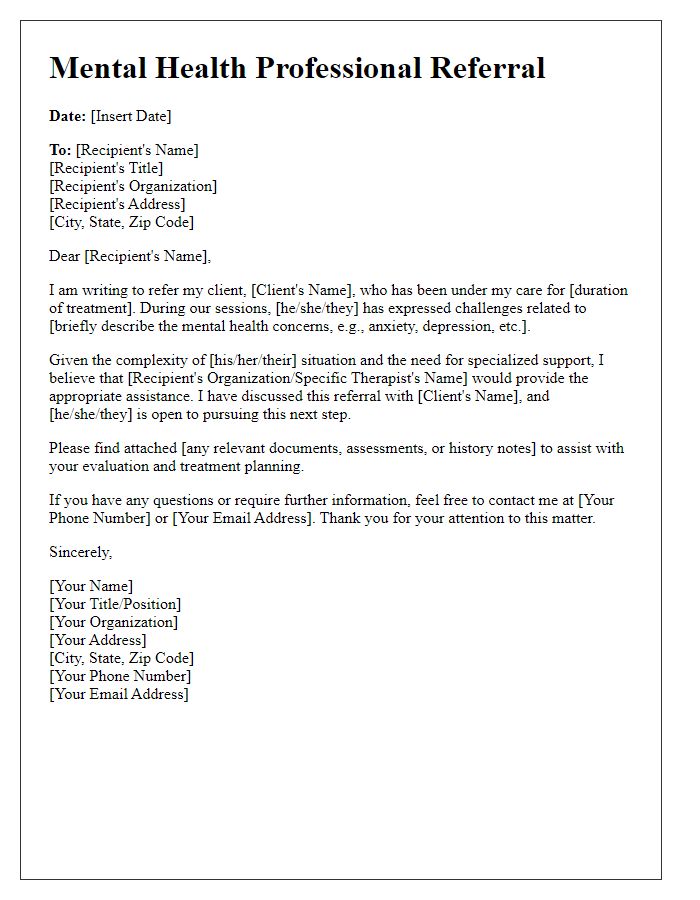
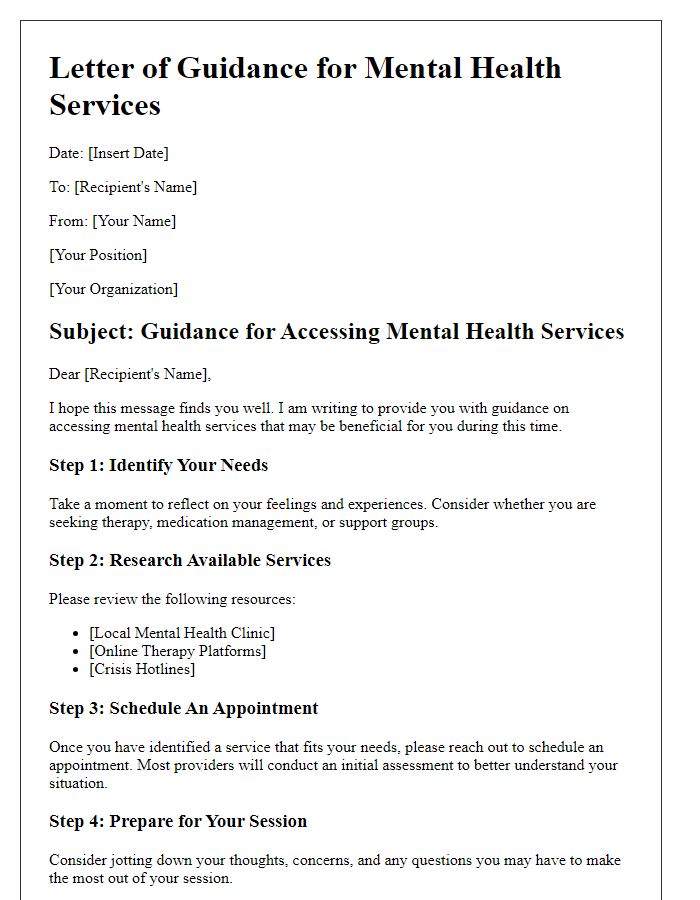
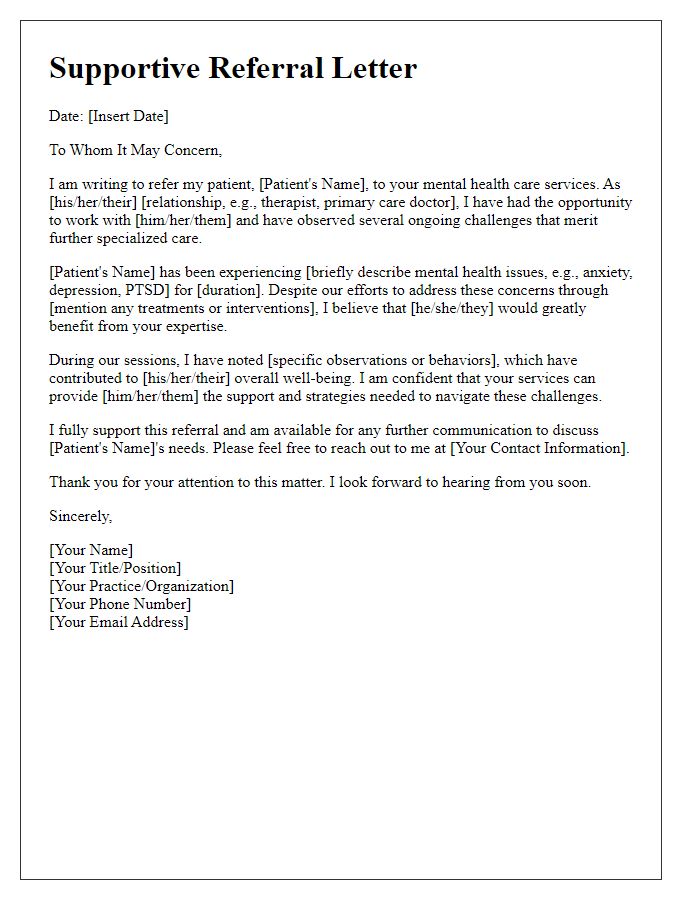
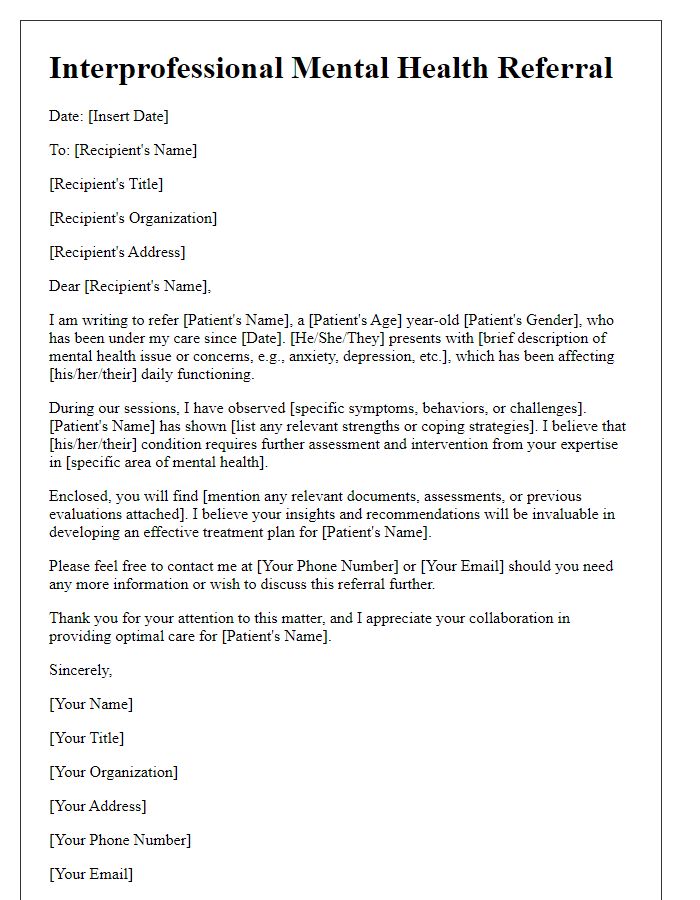
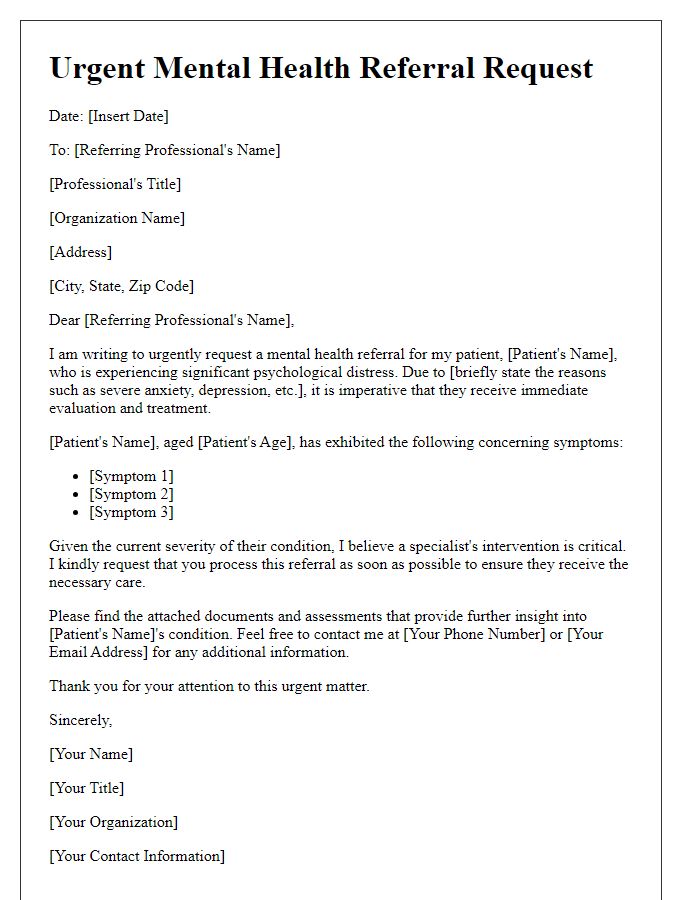


Comments